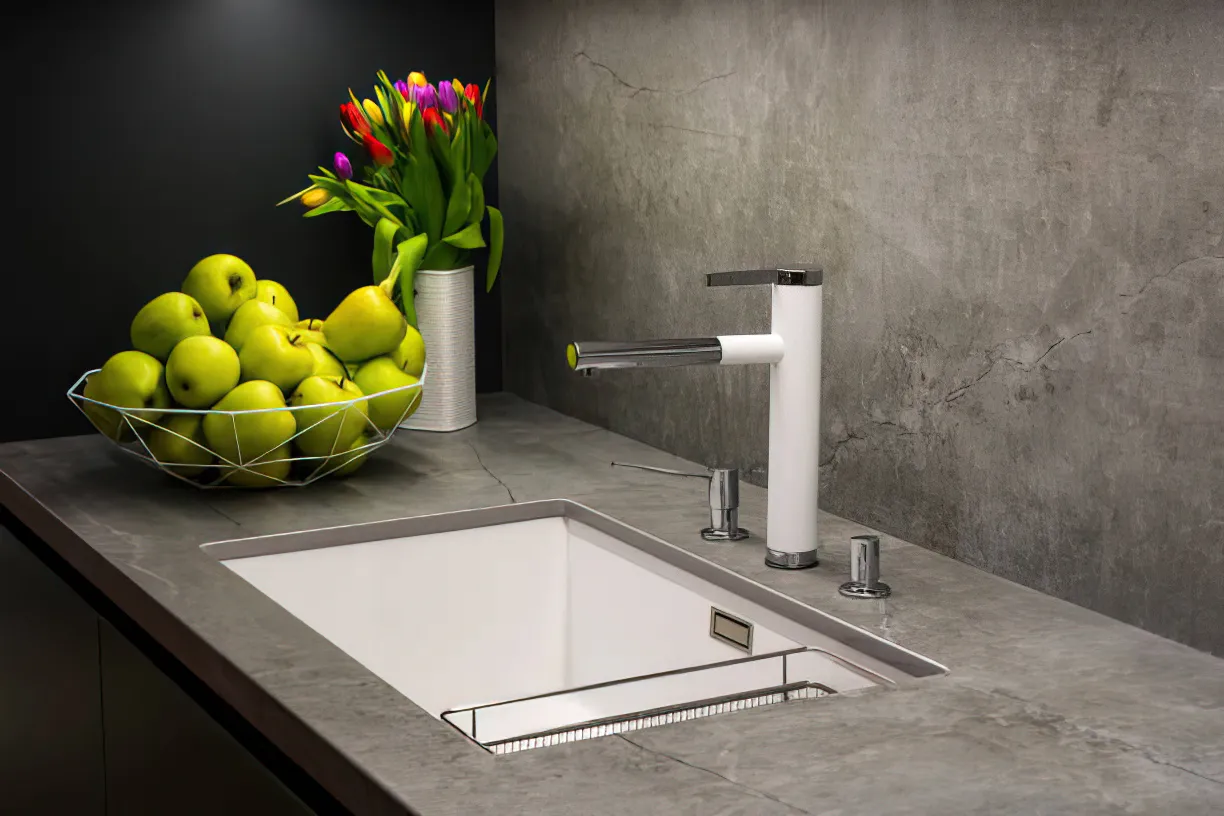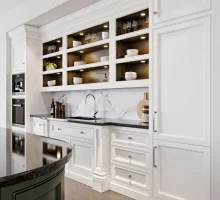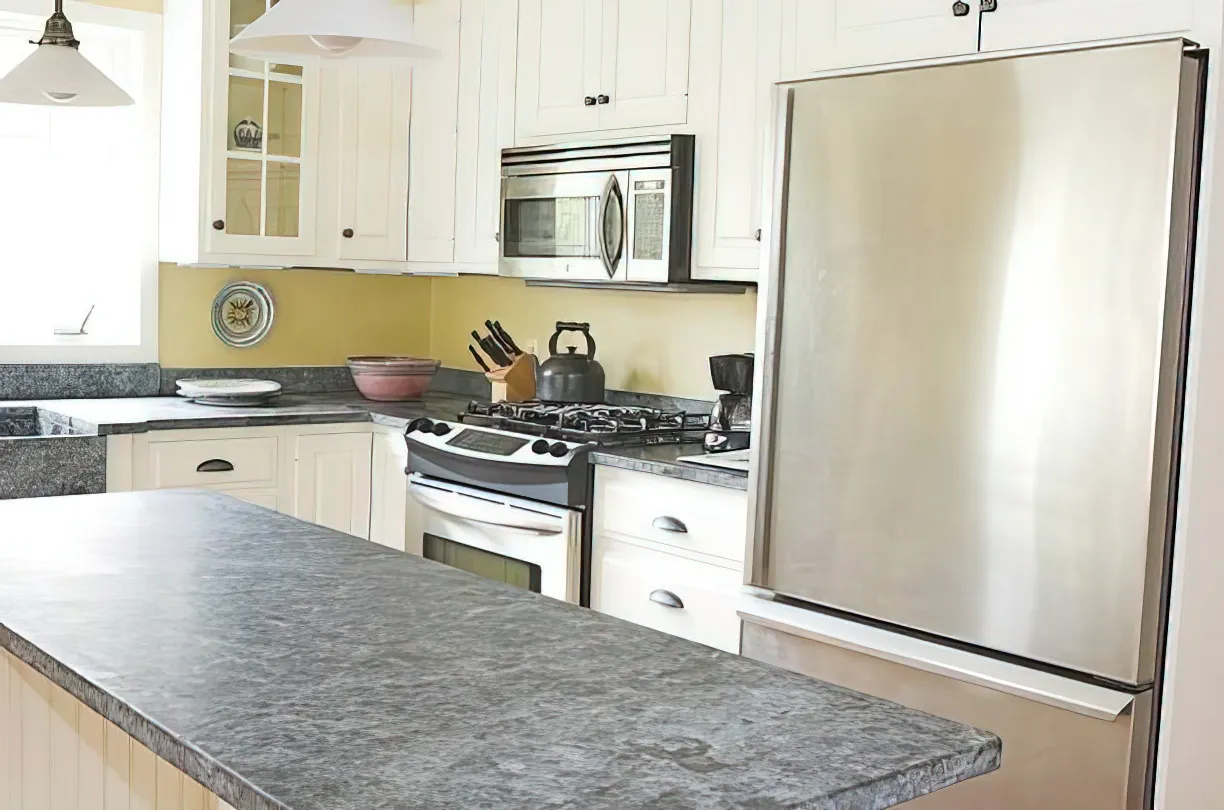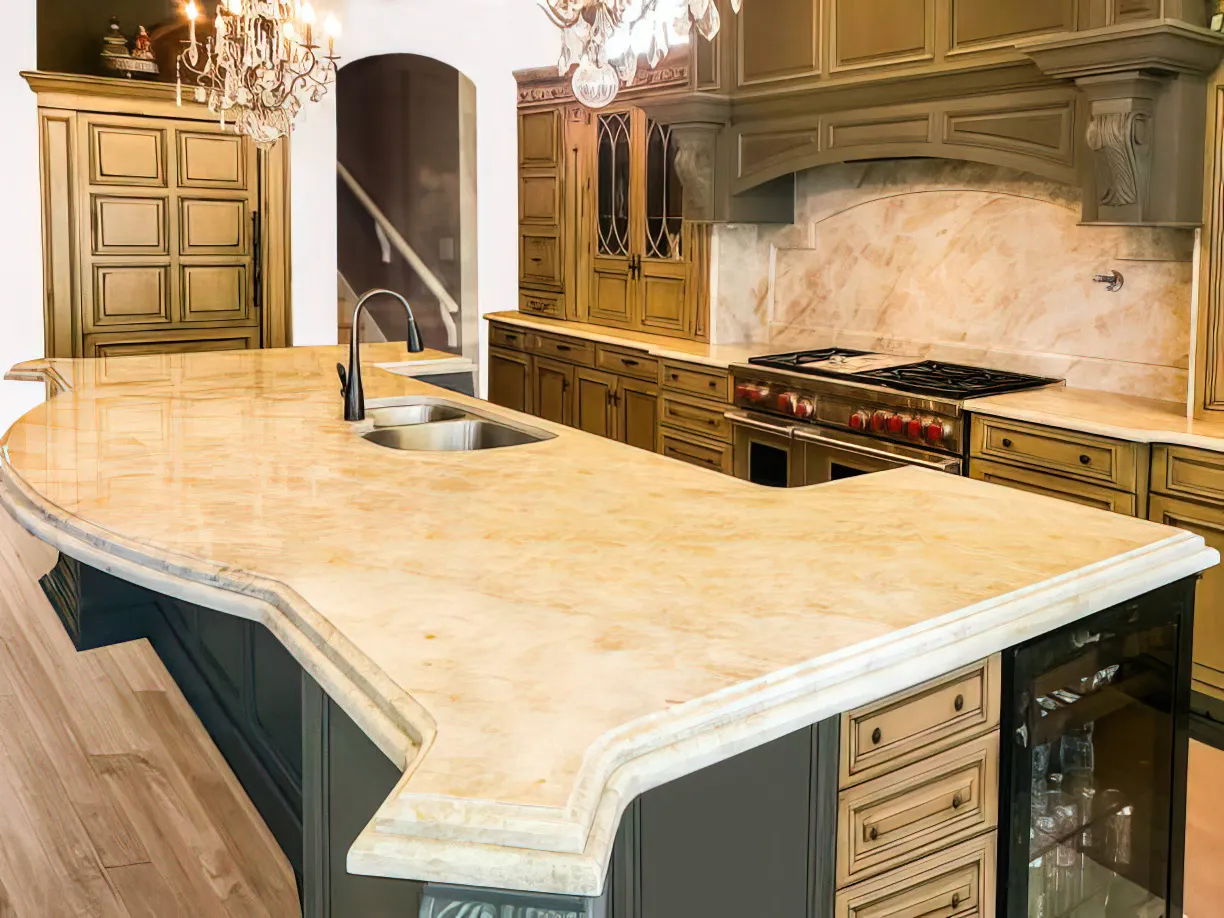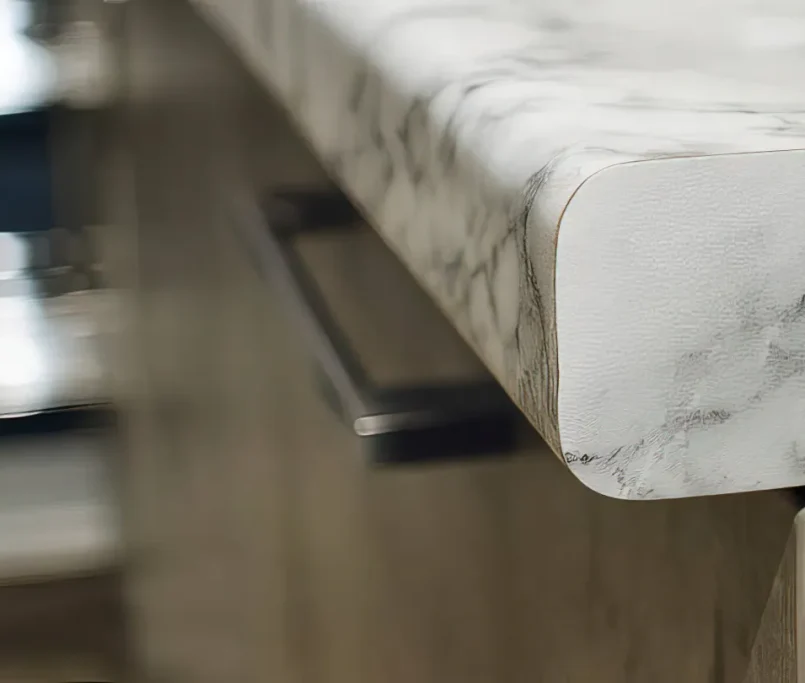Innovative and contemporary, concrete countertops have made a mark in the world of interior design as they deliver a chic and industrial aesthetic to modern homes. Do you have a concrete countertop in your kitchen or bathroom and want to keep it looking great? Concrete countertops can add a special, stylish look to any room, but they require a bit of special care to keep them looking their best. In this guide, we’ll walk you through the best ways to clean, maintain, and remove stains from concrete countertops. With the right tips and tricks, you can keep your countertops looking pristine.
=> Related Articles: How to clean countertops
- Marble Countertop
- Soapstone Countertop
- Quartz Countertop
- Limestone Countertop
- Concrete Countertop
- Granite Countertop
- Slate Countertops
What are Concrete countertops?
Concrete countertops are created by pouring a mixture of cement, sand, and water into a mold, to which pigments, glass, and other additives can be added for a unique and personalized look. With proper care and maintenance, concrete countertops are highly durable and can last for decades. Once dry and hardened, a protective coating is applied to prevent staining, ensuring your countertop looks as good as new. So if you’re looking for a long-lasting and stylish countertop, concrete is definitely worth considering!
Concrete countertops feature:
- They are Heavy, Durability, and heat resistant.
- Custom construction, easy to customize cut.
- Color variety, with different stains and dye
- Typically limited to a more industrial kitchen, modern home styles.
=> Read more: List Of Kitchen Styles For Your Home Kitchen Remodel Ideas
How to Clean concrete countertops:
Keeping your concrete countertops clean doesn’t have to be a HARD task. The key is to remember that acid is the enemy of concrete countertops, so you need to avoid using any acidic cleaners. Regular Cleaning of your concrete countertops is the best and simple way to keep your countertops at their best.
For Daily / Clean Regularly :
- For spills, small dirt, and debris: all you need to do is mix one teaspoon of dish detergent in four cups of water and keep it in a spray bottle. After cooking or food preparation, simply spray the countertops and wipe them down.
- Removing small stains: If you have concrete countertops in your home, you may have noticed some discoloration or stains due to food, beverages, or other substances. Fortunately, it is easy to remove these stains with chlorine bleach. Simply dip a cotton ball or white paper towel into the bleach and apply directly to the stain. Weigh the paper towel down with a heavy glass bowl and let it sit for five to ten minutes. After this time, rinse the surface well with plain, cool water. Make sure not to leave the bleach on the stain for more than ten minutes as this could cause damage to the sealant.
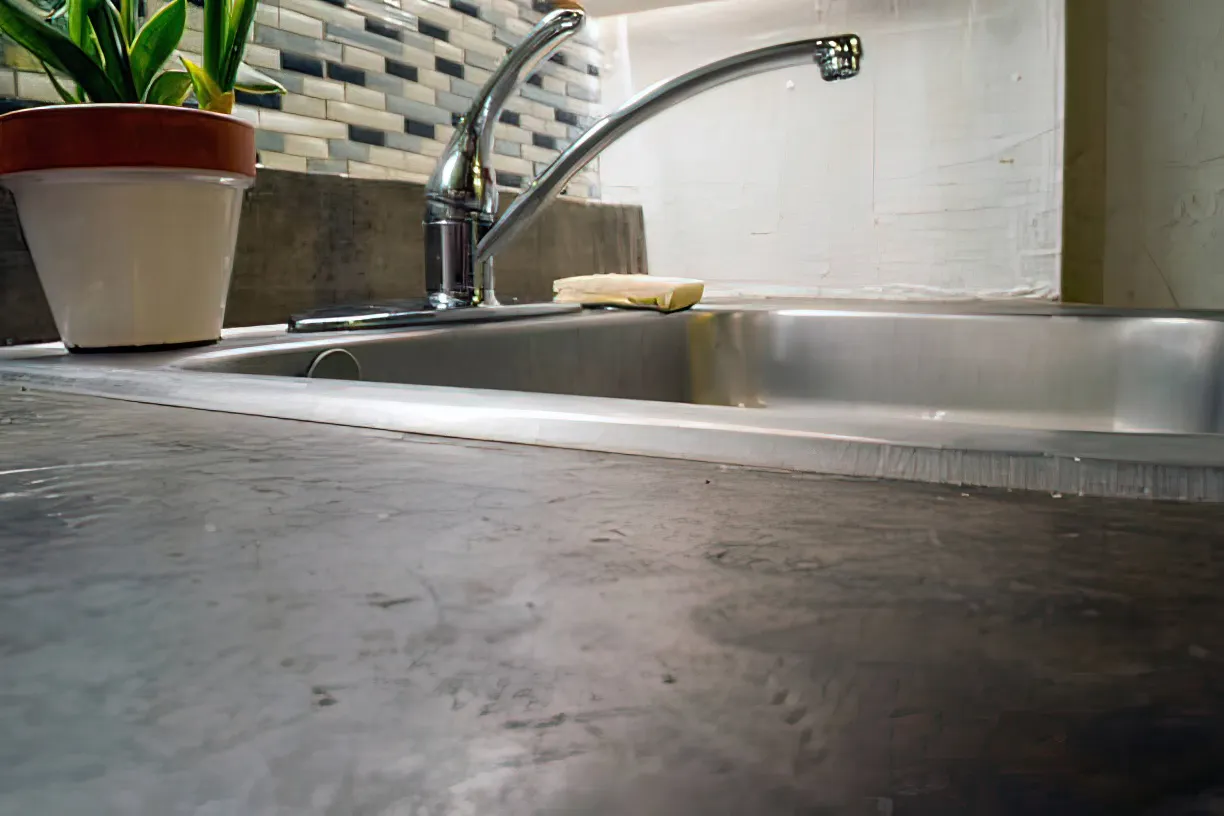
For Monthly Clean:
Wax the surface monthly to protect your concrete countertops. This will create a slick surface that helps keep the countertop clean and prevents stains from settling in. When applying a new layer of wax, there’s no need to remove the old wax as the build-up provides extra protection. To remove stubborn stains, you can use a mixture of mild detergent and water. A soft cloth dipped in the solution can be used to gently scrub away the stain. For more difficult stains, you can use a scrubbing brush or a damp sponge. Wipe away the residue with a cloth soaked in clean water. If that doesn’t work, you can try using a stronger solution of baking soda and water. Make sure to rinse the area thoroughly with clean water afterward.
- Use a mild cleaning solution: When you want to Deep clean your concrete countertop, try to avoid using harsh chemicals or abrasives that can damage the surface. Instead, use a mild cleaning solution of warm water and mild dish soap to remove dirt and grime. You can also use a pH-neutral cleaner specifically designed for concrete surfaces.
- Use a soft-bristled brush: To avoid damaging the surface of your concrete countertop, use a soft-bristled brush when cleaning. Avoid using steel wool or scouring pads, as they can scratch and damage the surface.
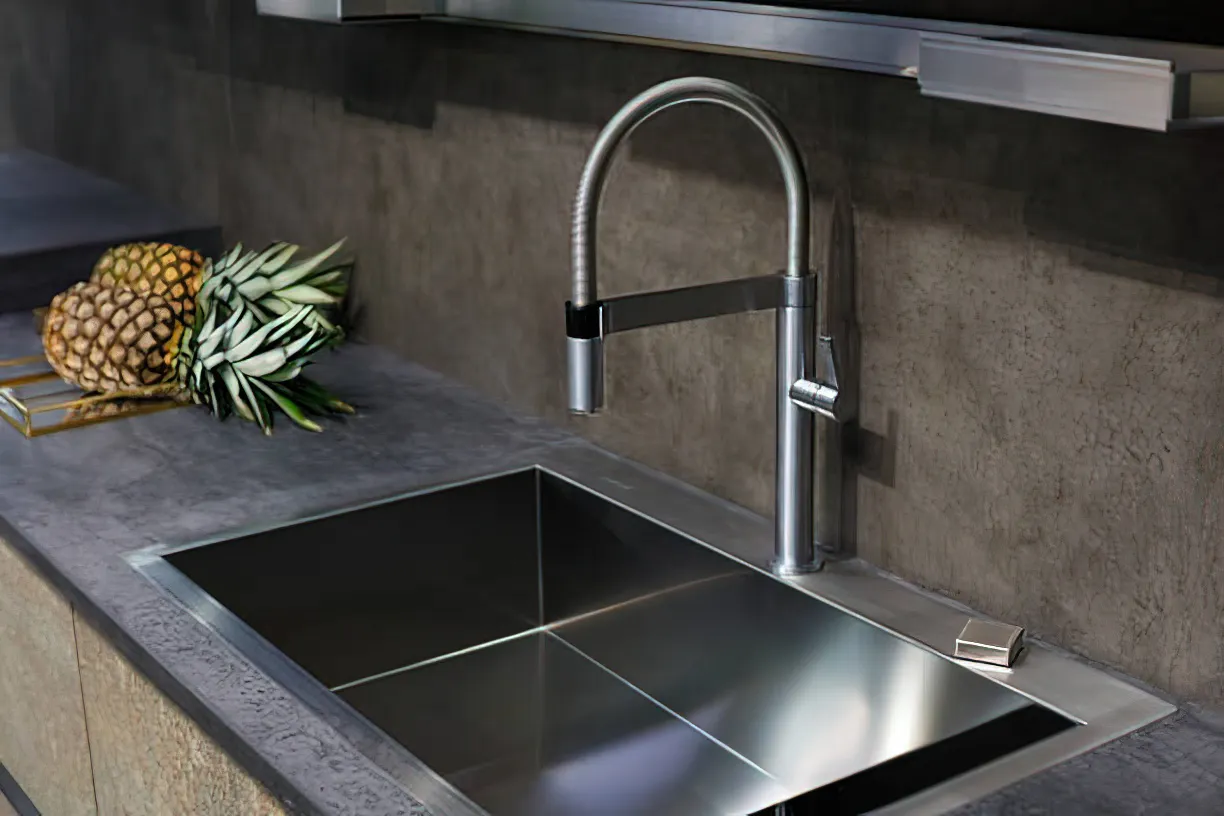
How to Remove Tough Stains of Concrete Countertop:
For Removing Oil and Grease: Use a degreaser solution
Most of the time, it’s easy to clean concrete countertops. But sometimes the tough stains from oil and grease can make you a headache.
- For the new Oil and Grease stains: To remove tough stains from oil and grease stains from your concrete countertop, start by applying a degreaser solution. You can make a DIY degreaser solution with white vinegar and baking soda or purchase a commercial degreaser from your local hardware store. Spray the solution over the stain and let it sit for a few minutes before scrubbing with a stiff brush. Rinse with water and repeat the process if necessary.
- For old touch stains that soaked into your countertop: The Oil and Grease stains can remain even after the food is gone that soaked deep into your countertop. For Remove them you necessitate the use of a poultice. A poultice is merely a blend of a solvent and an absorbent powder, which is typically a thick paste. Baking soda is often combined with acetone and powdered sugar or flour to make a poultice that can loosen and soak up oil from your countertop. Spread the poultice on your concrete countertop and seal it with plastic wrap, leaving it for twenty-four hours to allow the acetone time to work. After removing the plastic wrap, let the poultice dry completely before wiping it off with a damp cloth. If necessary, repeat the process until you have gotten rid of all the stains.

For Wine and Food: Hydrogen peroxide and baking soda
If your countertops are stained from Wine and Food – For Deal with the stains from your concrete countertop, mix a small amount of hydrogen peroxide and baking soda to make a paste. Apply the paste to the stain and let it sit for 30 – 1 hour before scrubbing with a brush. Rinse with water and repeat if necessary.

For Paint: Use commercial solvent or paint thinner
How about stains from paint? Removing paint stains can be a bit tricky, but there are a few ways to do it. For latex paint, use a solution of dish soap and warm water to soften the paint. Use a scraper to gently remove the paint, being careful not to scratch the surface. For oil-based paint, you can use a commercial solvent or paint thinner to remove the stain. Apply the solvent to a rag and carefully rub the stain until it dissolves. Rinse with water and dry with a clean cloth.
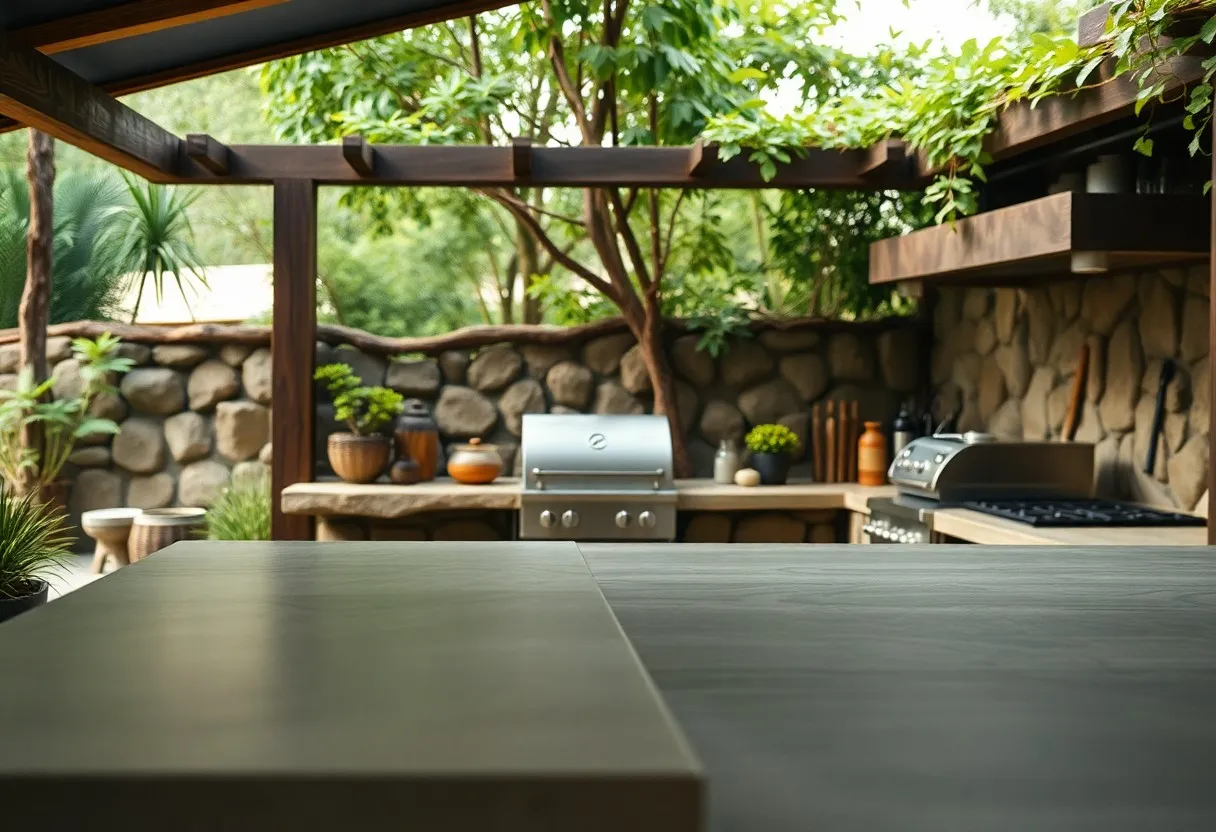
For Ink: Use alcohol or acetone
Ink stains can be removed using rubbing alcohol or acetone. Soak a rag in the solution and apply it to the stain. Allow it to sit for a few minutes before gently scrubbing it with a brush. Rinse with water and repeat if necessary.
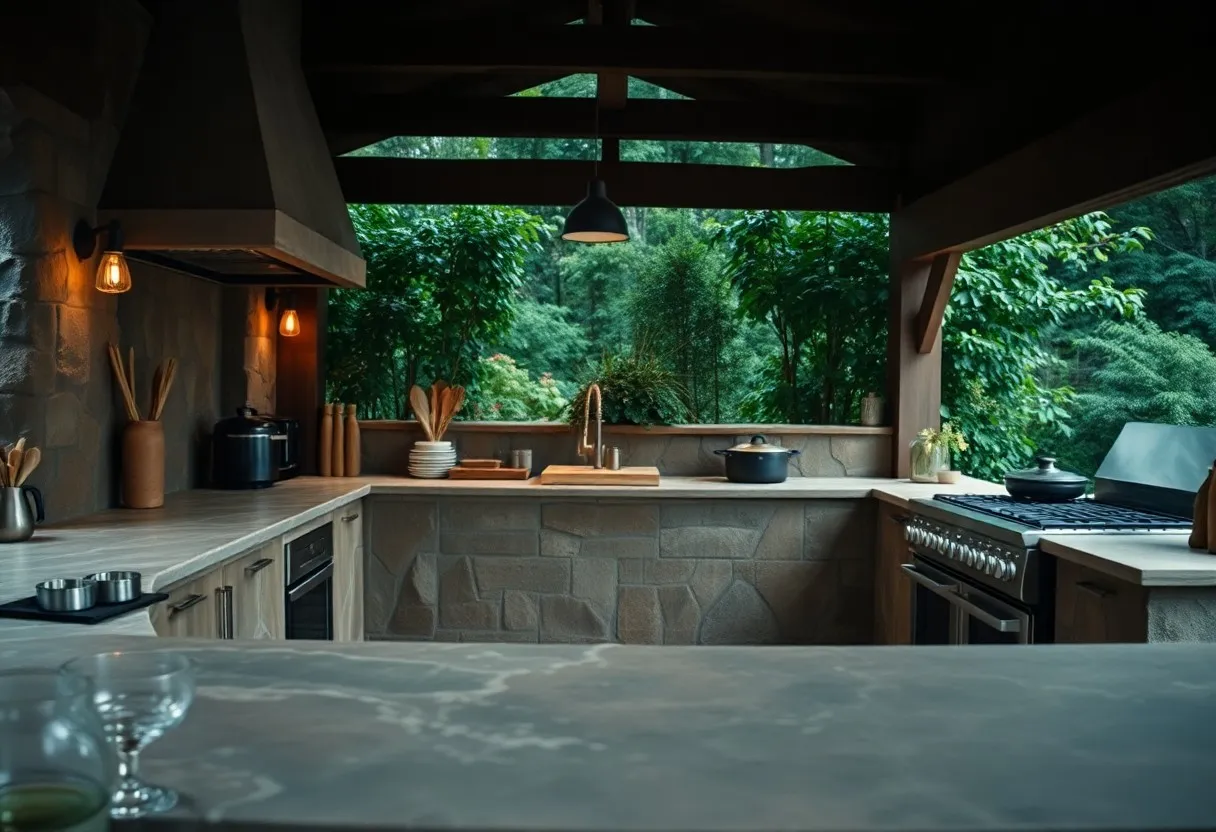
Final Word / Summing Up
As a reminder, maintaining the beauty and durability of your concrete countertop involves consistent care and the right cleaning techniques. You should avoid acidic cleaners and focus on regular cleaning with mild detergents and water to keep your surface looking its best. Monthly waxing not only enhances the countertop’s appearance but also provides an added layer of protection against stains and wear. When tough stains like oil, wine, paint, or ink occur, using appropriate solutions such as degreasers, baking soda paste, or alcohol-based products will help you effectively restore your countertop.
Faqs About How to clean, maintain, and remove stains concrete countertops
What is the best thing to use to clean concrete?
If you have small grease stains, soda can come in handy. Smaller spills can be treated with detergent. If you prefer environmentally friendly alternatives, you can use vinegar and baking soda to clean concrete surfaces.
What common tough stains are found on concrete countertops?
In the daily life of your home, Some common tough stains found on concrete countertops include oil, wine, coffee, rust, and ink… Cleaning them doesn’t have to be a HARD task if you know the right way to do.
Prevent stains from forming on my concrete countertop?
To prevent stains from forming on your concrete countertop, wipe up spills immediately, avoid placing hot pots or pans directly on the surface, and use a cutting board when cutting food. You should also seal your countertop regularly to protect it from stains and damage.
How often should I seal my concrete countertop?
Should seal your concrete countertop every 1-3 years, depending on the manufacturer’s recommendations and how frequently the countertop is used.
What can damage concrete countertops?
Acidic substances (like lemon juice), strong cleaners, and putting hot pans directly on the surface. Always use cutting boards and trivets.
Is etching the same as staining?
No. Etching is a dull, rough patch caused by acid, while a stain is discoloration. Both can be minimized but may require professional repair if deep.
What about rust stains?
Use a poultice made of hydrogen peroxide and a few drops of ammonia. Apply carefully and rinse thoroughly after 15–20 minutes.








